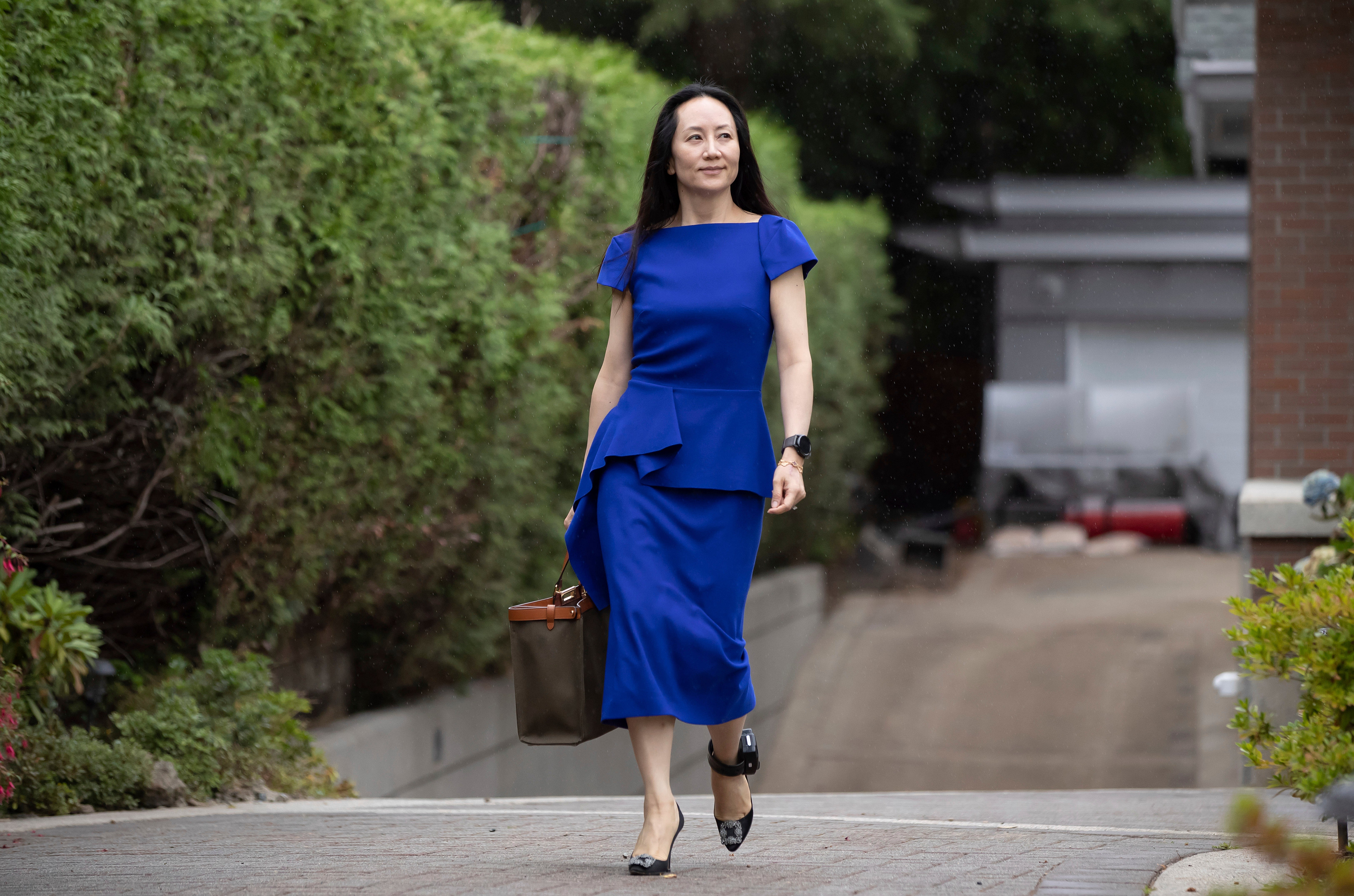Huawei CFO's legal team resumes defense in Canadian court
Lawyers for a senior executive for Chinese communications giant Huawei Technologies have argued at an extradition hearing in Canada that there is no evidence she made any misrepresentations that resulted in a bank suffering a loss

Lawyers for a senior executive for Chinese communications giant Huawei Technologies told a court Monday that there is no evidence she made any misrepresentations that resulted in a bank suffering a loss or put the bank at risk of suffering a loss.
Meng Wanzhou who is the daughter of Huawei’s founder and serves as the company’s chief financial officer, was arrested at Vancouver’s airport in late 2018 at the request of U.S. authorities. Her arrest infuriated Beijing, which sees her case as a political move designed to prevent China’s rise.
The U.S. wants Meng extradited to face fraud charge, alleging she committed fraud by misleading the HSBC bank about the company’s business dealings in Iran. It accuses Huawei of using a Hong Kong shell company called Skycom to sell equipment to Iran in violation of U.S. sanctions.
The lengthy extradition proceeding is entering the phase which involves arguments over the U.S. government’s request to extradite Meng.
Defense lawyer Mark Sandler said the U.S. must prove that during a meeting with an HSBC executive, Meng made misrepresentations that put the bank at risk of violating sanctions.
“The requesting state has failed to establish any economic loss or risk of loss,” Sandler said. “In any event any such loss . . . was not caused by Meng’s alleged misrepresentations."
During the meeting, Meng said Huawei and Skycom continued to do business in Iran, Sandler said.
After the meeting it was HSBC’s choice to take money deposited by Skycom and clear it through the U.S., he said.
“Any exposure to HSBC was its own doing and was not caused by anything represented to it by Ms. Meng,” said Sandler. “There is no evidence that Huawei or Skycom had any role in how HSBC chose to clear the funds."
Canadian justice department lawyers have argued that during the meeting with the bank official, Meng was dishonest in not disclosing Huawei’s relationship with Skycom and that put the bank at risk of violating U.S. sanctions against Iran.
Meng, who attended the hearing wearing an electronic monitoring device on her ankle, followed the proceedings through a translator.
Associate Chief Justice Heather Holmes isn’t expected to rule on Meng’s extradition until later in the year. Whatever her decision, it will likely be appealed.
Last week a Chinese court sentenced Canadian entrepreneur Michael Spavor to 11 years in prison for spying.
Spavor and fellow Canadian Michael Kovrig were arrested in December of 2018 in apparent retaliation to Meng’s arrest.
In another case, the Higher People’s Court of Liaoning province in northeast China rejected an appeal by Canadian Robert Schellenberg, whose 15-year prison term on drug smuggling charges was increased to death in January 2019 following Meng’s arrest.
Meng remains free on bail in Vancouver and is living in a mansion.